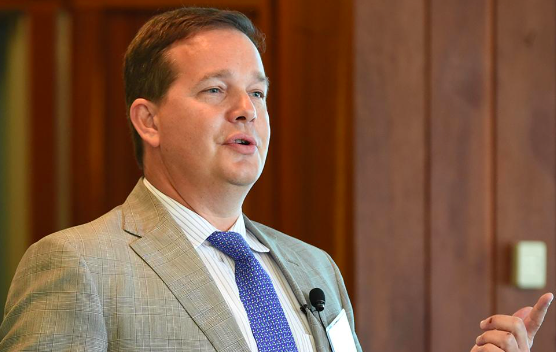Dr. Hinrich Staecker is a scientist and trailblazer in the research of life sciences, particularly in the field of hearing loss. His research has long centered around finding possible avenues of regenerative gene therapy to counteract hearing loss with an emphasis on stem cell research and protein therapy research.
Staecker has published numerous papers on his research ranging from basic science to clinical research, earning him recognition at many leading international conferences and symposia on hearing research. His findings have obtained wide acceptance amongst audiologists, scientists and clinicians alike due to their potential for helping to restore hearing in those with hearing-related issues. As such, Dr. Hinrich Stecaker’s research has been paramount in advancing our understanding of life sciences and aiding those affected by hearing loss. Rescue Hearing is incredibly proud to have Dr. Staecker on the team.
We asked Dr. Staecker a few questions about himself, his role within RHI, and what he sees for the future of Rescue Hearing. The following is the Q and A between RHI and Dr. Staecker:
What or who inspired you to begin research and take action towards creating effective gene therapies for hearing loss?
“I’ve always been interested in hearing and interpersonal communication and throughout my training was struck by the paucity and inadequacy of treatments that we have available. Despite the resounding success of cochlear implantation, I have always felt that there’s a lot more that we can do for our patients. I’ve worked in gene therapy since medical school, and I think there’s a tremendous opportunity to make an impact on the lives of people using this technology”.
How would you frame success with what you have achieved?
“For me success would not only consist of developing an effective treatment but really bringing about the understanding that hearing loss is a diverse group of disorders that will be treatable with targeted therapeutics”.
How does this work relate to the other research that you are doing currently?
“We have a range of projects that look at the ability to improve our treatment of hearing loss. We are currently working on gene therapy applications to improve cochlear implantation and are also looking at novel diagnostic tests for inner ear disease so we can better group patients for clinical trials”.
What surprised you the most while doing this gene therapy research? What obstacles did you have throughout this process and how did you overcome them?
“I think what surprised me the most is the enthusiasm of patients in their support for research and willingness to participate in clinical trials. I thought it would be difficult to recruit patients however this has not been the case, which clearly demonstrates the desire of the community to have more treatments available”.
What are the economic implications that arise from within the field of hearing loss?
“The economic impact of hearing loss has been widely studied the most recent World Health Organization reports suggest that there is a cost of over $100 billion annually due to hearing loss related to unemployment and premature retirement and that there are further $573 billion in costs resulting from social isolation and communication difficulties. On top of this, recently it’s become clear that hearing loss is a major risk factor for cognitive decline the costs of which have not been factored into these calculations”.
What comes next?
“We’ve assembled a great team and we look forward to moving forward towards clinical trials. There is clearly a lot more work to be done and while we prepare for our initial human patients we will have several new targets that we continue to develop in the lab”.
-RHIposthttps://rescuehearing.com/major-contributions-within-rhi/

